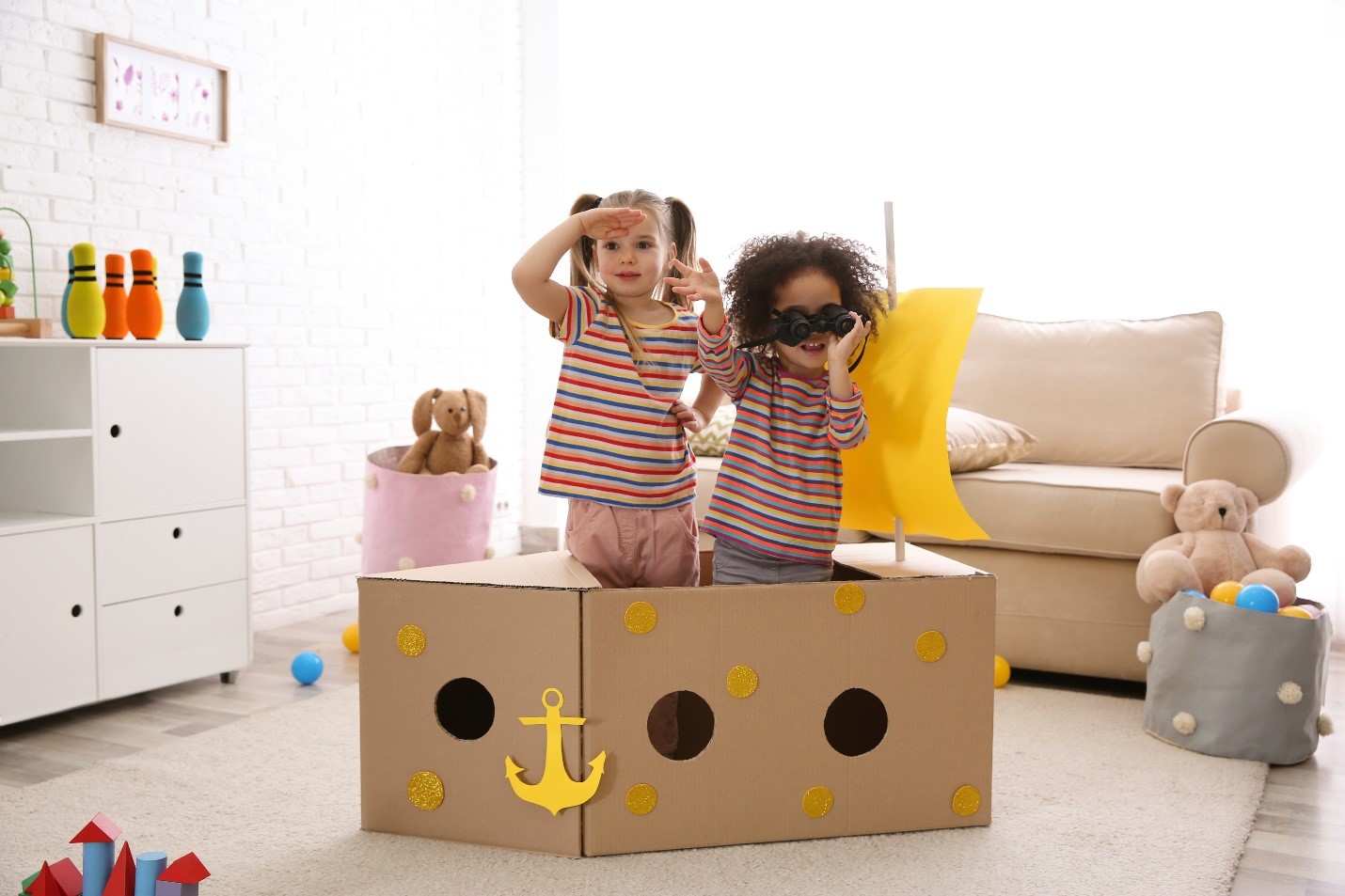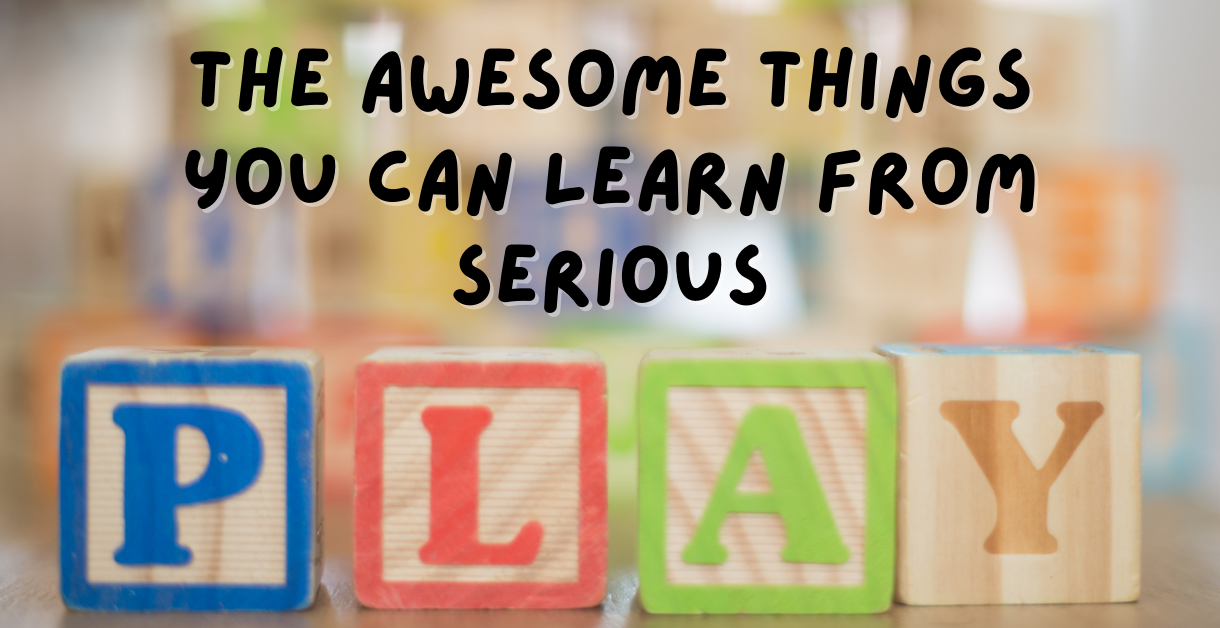Serious play… sounds like an oxymoron, doesn’t it?
The truth is, when it comes to children, we may not think about the importance of play because it seems like children naturally know how to play. But as adults, we sometimes forget to provide a space for play as our children grow. We forget that we need to protect and encourage our children’s time to play.

Lev Vygotsky (1896–1934), the Russian psychologist to whom early play theory is credited, said, “In play a child always behaves beyond his average age, above his daily behavior. In play it is as though he were a head taller than himself.”
The benefits of play are endless. When your child shifts their lens into looking at the world through play, it sparks curiosity. Play opportunities (structured games or are free play) nurture feelings of satisfaction and joy. When your child is in an interactive setting with other children, this playtime allows them to build empathy and understanding for others.
Through play, the uncomfortable feelings that a competitive situation might bring come to be experienced as creative opportunities. When engaged in play, children learn how to react to those feelings, and they learn how to navigate and compromise. Play provides opportunities for children to observe how others work through challenges, helps build stamina, and reinforces children’s confidence.

To use play within your school day, strategically create opportunities for your child to experience the continuum of play. For younger children, provide interactive materials to allow them to experiment on their own.
Introduce “what if” and “I wonder” questions built around the concept you are teaching as a tool to develop more sophisticated ways of thinking. Advanced learners will welcome open-ended challenges tied to real-world situations that they can play through as they create solutions to solve problems.
It’s as easy as 1-2-3 to integrate play into your homeschool routine. Try these simple ideas to incorporate delight, anticipation, satisfaction, and problem-solving stamina into your child’s day:
Create Opportunities for Experimentation
Make colored rice or use bags of dried beans; place in a large flat container such as a cookie sheet. Young learners can experiment with filling various-sized containers or building make-believe roads or mazes. “Playing with” volume, weights, and measures are easy and tangible math lessons in those areas for older learners. More advanced learners can illustrate charts, graphs, or maps to show what they see.
Create Opportunities for Reflection
Helping your child recognize what they like and what makes them feel successful is quite important. This happens through opportunities for reflection. All ages should be encouraged to have conversations about which activities they found fun or those they found challenging (and even those they found boring!). Reflection can be done using sticky dots with smiley faces on them for non-writers or non-verbal children, or simply keeping a play journal where students record pictures or writing to talk about the things they learned while they were playing.
Create Opportunities for Creativity
“Toys” made from things around the house are easy to make available to your child. Empty boxes and paper towel tubes lend themselves to free building, or for older students, solving a building challenge of some sort. Clay can take any form and suits multiple ages. For outdoor play, save large branches and rocks as “loose parts” for children to use in building. Also, don’t discount how the text of a fiction book can be used for play. Ask your older student to create a new character, and then fit the character into the existing storyline. How does the new character interact with the other characters? How do they explain their appearance in the storyline? There are so many things that can be done to help students “play” with the idea of change in creative ways.

When looking for support to help you build play into your child’s day, consider looking for one that builds in experimentation, reflection, and creativity, KneoWorld is a strong contender.
The KneoWorld platform provides immersive, story-based learning experiences that help your child progress in critical thinking through activities that feel like play. Engaging illustrations ignite curiosity as your child interacts with dynamic and diverse characters. Students build social-emotional skills as they work alongside the characters to solve problems. As your child progresses through different learning challenges, they’re given opportunities to reflect on their experiences and practice their learning through games and logic puzzles. KneoWorld provides you with the peace of mind to know exactly how your child is progressing because you have access to your child’s play results. Adding the KneoWorld platform to your existing curriculum provides another avenue to ensure that your child is getting opportunities to play every day.
Thank you to our friends at KneoWorld for this week's post. Plus, at the Co-op, members save 33% on KneoWorld.


